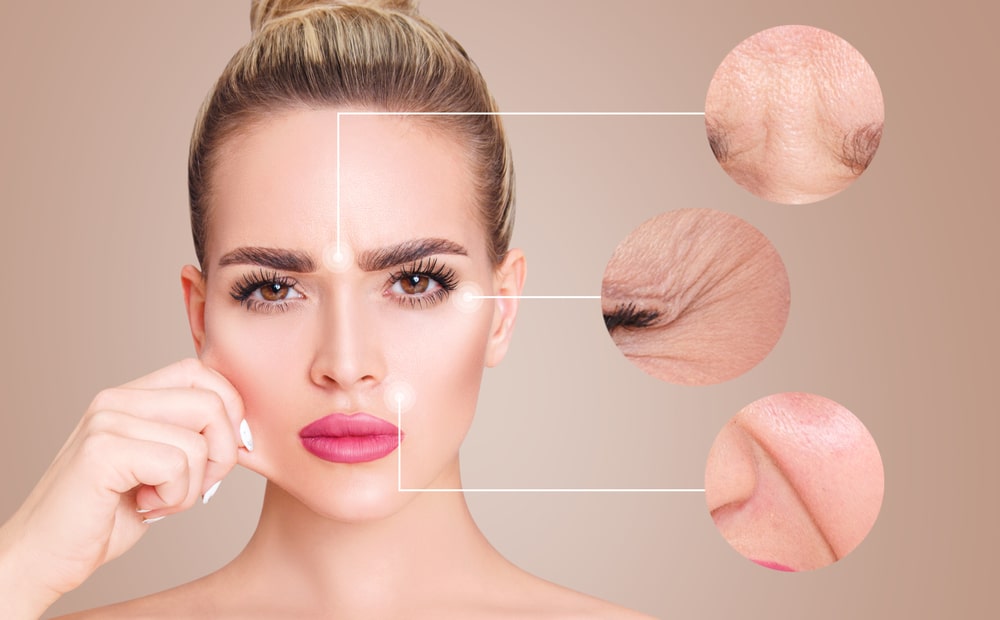The quest for longevity, health, and beauty has been an integral part of human civilization for centuries. In the modern era, this pursuit has shifted from mythological fountains of youth to scientific advancements that promise to slow down the aging process, enhance quality of life, and promote long-lasting beauty. With advancements in medical research, biotechnology, and a deeper understanding of human biology, the science of anti-aging has made significant strides. This article explores the science behind anti-aging, focusing on how cutting-edge research is transforming our understanding of aging, and offering practical solutions for longevity, health, and beauty.
Understanding the Aging Process
Aging is a complex biological process that affects every cell, tissue, and organ in the body. While everyone experiences aging, the rate and severity of aging vary based on factors like genetics, lifestyle, environmental factors, and even social connections.
The biological mechanisms of aging can be broken down into several key processes:
1. Cellular Senescence:
Cells in the body divide a limited number of times. Once they reach their replicative limit, they enter a state of senescence , where they stop dividing but remain metabolically active. Senescent cells accumulate over time and release inflammatory molecules that contribute to tissue damage and age-related diseases.
2. Telomere Shortening:
Telomeres are protective caps at the ends of chromosomes. Each time a cell divides, these telomeres shorten. Once they become too short, the cell can no longer divide and enters senescence. Telomere shortening is strongly associated with aging, and research has linked it to age-related diseases like cancer and cardiovascular disease.
3. Mitochondrial Dysfunction:
Mitochondria are the energy powerhouses of cells, producing the energy necessary for cellular function. With age, mitochondrial efficiency declines, leading to less energy production and increased oxidative stress, which damages cells and tissues.
4. Oxidative Stress and Free Radicals:
Free radicals are unstable molecules that can damage DNA, proteins, and other cellular structures. The body’s antioxidant defenses typically neutralize free radicals, but with age, these defenses weaken, leading to cumulative damage and contributing to the aging process.
5. Decreased Stem Cell Activity:
Stem cells are responsible for regenerating damaged tissues. As we age, stem cells become less active, reducing the body’s ability to repair itself. This decline in regeneration is a major factor in tissue aging and reduced vitality.
Scientific Approaches to Anti-Aging
In recent years, the field of anti-aging research has advanced significantly, thanks to groundbreaking discoveries in genetics, biotechnology, and pharmacology. Several key scientific approaches aim to slow down or even reverse the aging process:
1. Telomere Extension and Maintenance:
Telomere length has been a focal point in aging research. Scientists are investigating methods to preserve telomere length and prevent the shortening that accelerates aging. A compound called telomerase can extend telomeres, and researchers are exploring its potential to slow down cellular aging. While some studies show promise, much remains to be understood about the long-term safety and efficacy of telomere-targeting therapies.
2. Caloric Restriction and Intermittent Fasting:
Studies on animals and humans have shown that caloric restriction (eating fewer calories while maintaining essential nutrients) can extend lifespan and improve health markers related to aging. Caloric restriction reduces oxidative stress, improves metabolic health, and enhances autophagy (the body’s process of cleaning out damaged cells). Intermittent fasting , a popular eating pattern that alternates between periods of eating and fasting, has also been shown to promote longevity by boosting growth hormone production and enhancing cellular repair mechanisms.
3. Sirtuins and NAD+ Boosters:
Sirtuins are a family of proteins that regulate cellular health and metabolism, particularly in response to stress. Sirtuins play a role in extending lifespan and protecting against age-related diseases. NAD+ (nicotinamide adenine dinucleotide) is a molecule that fuels sirtuins and other vital enzymes. However, NAD+ levels decline with age, leading to mitochondrial dysfunction and impaired DNA repair. Research on NAD+ precursors, like nicotinamide riboside (NR) and nicotinamide mononucleotide (NMN) , shows promise in restoring NAD+ levels, improving metabolic function, and extending lifespan in animal models.
4. Autophagy and Senolytics:
Autophagy is the body’s way of cleaning out damaged cells and regenerating new ones. It helps maintain cellular homeostasis, removing debris that contributes to aging. Fasting and certain compounds, such as rapamycin , stimulate autophagy and may delay aging.
Another exciting area of research is the development of senolytics , which are drugs that specifically target and eliminate senescent cells. By removing these “zombie” cells, senolytics can reduce inflammation, improve tissue function, and potentially extend healthspan.
5. Gene Therapy and Epigenetic Reprogramming:
The field of epigenetics focuses on how environmental and lifestyle factors can influence gene expression without changing the DNA sequence. Researchers are investigating ways to manipulate the epigenome to reverse age-related changes. Gene therapy is also being explored as a way to repair damaged DNA and restore youthful gene expression. In 2016, scientists successfully reprogrammed the epigenetic markers in mice, effectively reversing some signs of aging. While these therapies are still in the experimental stages, they hold great potential for human aging in the future.
6. Stem Cell Therapy:
Stem cell therapy is one of the most promising areas in anti-aging research. Stem cells have the unique ability to regenerate damaged tissues, and scientists are exploring their potential to treat age-related conditions such as osteoarthritis, heart disease, and cognitive decline. Research is also underway to develop methods for rejuvenating existing stem cells and enhancing their regenerative capacity as we age.
7. Hormone Replacement Therapy (HRT):
Hormone levels naturally decline with age, affecting everything from muscle mass and bone density to skin elasticity and mood. Hormone replacement therapy (HRT) , particularly with growth hormone and sex hormones like estrogen and testosterone, has been used to slow some effects of aging. However, there are risks involved with hormone therapy, and it’s essential for patients to undergo careful evaluation before pursuing this approach.
Anti-Aging for Beauty: Skin Health and Beyond
A significant aspect of anti-aging research focuses on maintaining youthful skin and physical appearance. The skin is one of the most visible markers of aging, and much of the anti-aging beauty industry revolves around keeping skin smooth, firm, and free of wrinkles. Several scientific approaches aim to maintain and enhance skin health:
1. Collagen Production:
Collagen is the protein responsible for maintaining skin elasticity and firmness. As we age, collagen production declines, leading to wrinkles, sagging, and dull skin. Scientists are developing topical treatments, dietary supplements, and even injectable solutions to boost collagen production. Ingredients like retinoids , vitamin C , and peptides are widely studied for their ability to promote collagen synthesis and reduce signs of aging.
2. Antioxidants and UV Protection:
Free radical damage from environmental factors, such as pollution and UV radiation, is a significant contributor to skin aging. Antioxidants like vitamin E , vitamin C , and coenzyme Q10 can neutralize free radicals and protect the skin from oxidative stress. Additionally, sunscreen is essential for preventing photoaging, the premature aging of the skin due to sun exposure. Research shows that consistent use of sunscreen can help prevent wrinkles, age spots, and skin sagging.
3. Platelet-Rich Plasma (PRP) Therapy:
PRP therapy involves drawing a patient’s blood, processing it to concentrate the platelets, and then injecting it back into the skin to stimulate collagen production and promote tissue regeneration. PRP is commonly used in dermatology and cosmetic treatments to reduce wrinkles, improve skin texture, and enhance hair growth.
4. Exosome Therapy:
Exosomes are tiny vesicles that cells use to communicate and transfer growth factors, proteins, and genetic material. Exosome therapy is a cutting-edge approach in skin rejuvenation, using these cellular messengers to promote tissue regeneration and improve skin health. Exosome treatments are being explored for reducing fine lines, wrinkles, and scars.
5. Peptides and Growth Factors:
Topical formulations containing peptides and growth factors have shown promise in promoting skin repair and rejuvenation. These compounds stimulate cellular communication, collagen production, and tissue regeneration, helping to maintain youthful skin.
Lifestyle Interventions for Anti-Aging
In addition to scientific advancements, lifestyle factors play a crucial role in promoting longevity, health, and beauty. Here are some key lifestyle strategies backed by research:
- Balanced Diet: A diet rich in antioxidants, healthy fats, lean proteins, and vitamins can slow down the aging process. Mediterranean diets, for instance, which include plenty of fruits, vegetables, olive oil, and fish, are associated with a longer lifespan and reduced risk of chronic diseases.
- Exercise: Regular physical activity not only improves cardiovascular health and muscle mass but also stimulates the production of myokines, which are anti-inflammatory molecules produced by muscles. Exercise helps maintain mobility, improve mental health, and promote longevity.
- Stress Management: Chronic stress accelerates aging by increasing inflammation and oxidative stress. Practicing mindfulness, yoga, and meditation can help reduce stress and promote overall well-being, contributing to a longer, healthier life.
- Adequate Sleep: Sleep is essential for cellular repair, hormone regulation, and brain health. Research shows that poor sleep quality accelerates aging, while regular, restorative sleep helps maintain youthful skin and cognitive function.
Conclusion
The pursuit of longevity, health, and beauty is no longer confined to folklore or wishful thinking. Today, scientific research on anti-aging is providing promising insights into how we can not only live longer but also maintain health and vitality well into old age. From cellular therapies to cutting-edge skincare solutions, the future of anti-aging looks bright. However, the key to lasting youth may ultimately lie in combining scientific advancements with holistic lifestyle changes, ensuring a balance between scientific innovation and natural wellness practices for a truly ageless life.




